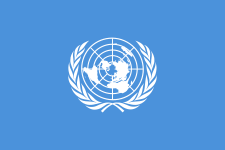Internet Governance Forum to tackle child porn, digital citizenship & other global issues
This post first appeared in the San Jose Mercury News
by Larry Magid
I’m in Nairobi, Kenya, this week to serve as a panelist at the United Nations’ Internet Governance Forum (IGF). I’m not sure what will be accomplished, but it’s an opportunity for “multi-stakeholders” from around the world to talk about important Internet-related issues such as child protection, cybercrime, privacy, censorship, managing critical Internet resources and making sure that the Internet is accessible in developing countries. The conference starts Tuesday and ends Friday.
One major issue at IGF is child protection. In addition to workshops on protecting youths against exploitation and exposure to pornography, there will be some on “digital citizenship,” to explore how we can protect children’s rights online while encouraging responsible behavior and making sure children have a meaningful voice. The issue has come to the forefront lately with increased attention to cyberbullying and sexting. But in addition to adults pressuring children to behave, at least some of us at IGF will be focusing on ways to reinforce the role of children and youths as active participants, which is what “citizenship” (digital or otherwise) is supposed to be about.
There will also be conversations about child pornography. Many countries have laws that prohibit trafficking in sexually explicit images of children but the laws are far from universal or consistent. Because of the Internet, images produced in one country can easily find their way to others, regardless of local laws.
The Internet Governance Forum doesn’t have any power, but it does have influence because it brings together people from around the world who help set the agenda for further discussions and, possibly, regulations. Its origins date back to the 2005 meeting of the World Summit on the Information Society. Unlike most U.N. bodies, IGF consists not just of government representatives, but people from industry and nonprofit organizations.
I’m going as a representative of ConnectSafely.org, a nonprofit Internet safety organization where I serve as co-director along with Anne Collier, who is chairing an IGF panel on digital citizenship. Although it’s mainly an adult-oriented event, London-based Childnet International is bringing young people to participate in the dialogue. There will also be young people from Africa, the Middle East, Asia and Europe.
The fact that IGF has no formal power is actually a good thing because it serves as an alternative to international regulations that — if some had their way — could be draconian. There are governments, including China, Iran and Brazil, that have called for strict laws regarding what is acceptable on the Internet. Here in the United States, we’ve had a history of robust debate about regulations, including several laws to “protect children” against pornography that have been struck down by courts because they would have also limited adults’ rights to access legal content.
If we can’t all agree on what’s acceptable in the United States, there is no way we can reach global consensus. China, for example, famously restricts access to Facebook and other social networking sites and numerous countries prohibit so-called adult pornography that is legal in the United States and many western countries.
Even issues like hacking, don’t necessarily lend themselves to international regulations. I’m pretty sure that most governments would agree that people who break into websites and servers should be prosecuted, but there is no global agreement on what constitutes cybercrime. It gets even hazier when we talk about issues such as copyright enforcement, which engenders vigorous debate even within the borders of many countries.
Having said that, there is a role for greater international cooperation because — unlike physical objects — data can travel between countries in the blink of an eye and typically without detection. That’s mostly a good thing, but not when it comes to child porn, malicious software or schemes to steal money or intellectual property.
John Carr, who serves as an Internet security adviser to the British government, argues that “Individual countries can and should be doing a lot more, particularly when it comes to stopping online child pornography.” Interpol, which coordinates law enforcement actions for numerous countries, does have procedures to intercept “the worst of the worst” images that show sexual exploitation of pre-pubescent children but, said Carr, “Many countries don’t have any laws in place.”
The National Center for Missing &Exploited Children (where I serve as a board member) reports that 19 percent of identified (child pornography) offenders had images of children younger than 3; 39 percent had images of children younger than 6; and 82 percent had images of children younger than 12.
There will be some at IGF who clearly want to emphasize the “G” in its initials by working toward some type of world governance system for the Internet, but many at the event, including representatives from the U.S. delegation, will want to encourage its role as an international forum where people can talk about the issues without the pressure or presumption of having to craft laws to actually control what happens between borders.


Leave a comment
You must be logged in to post a comment.